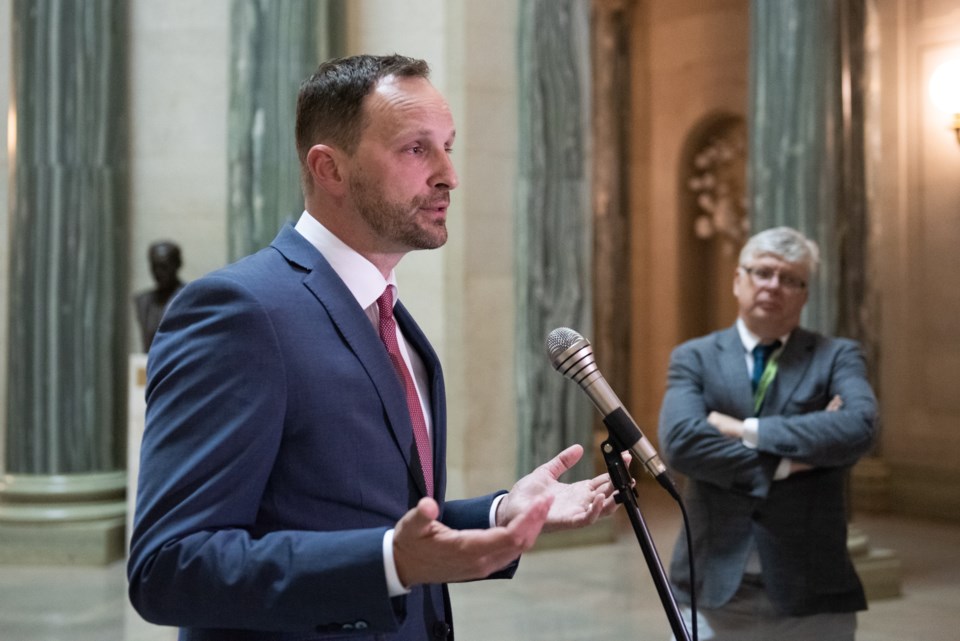Melfort – On Sept 21, Premier Scott Moe announced a new $15 million “Urgent Care Centre” for Saskatoon while Health Minister Jim Reiter announced a similar $15 million facility for Regina. The concept is to create facilities that can treat medical conditions that need immediate care, but aren’t life-threatening emergencies, thereby relieving the strain on overworked emergency rooms in the big cities.
NDP Leader Ryan Meili’s profession, when not being a politician, is that of a physician. Dr. Meili had taken time off from his medical work to lead the NDP, but returned to medicine part-time to assist with the COVID-19 pandemic. He and the NDP have been calling on the Saskatchewan Party government to do something about addressing overrun emergency rooms for years.
Meili was on the campaign trail, passing through Melfort on Sept. 22 when he was asked by phone about his thoughts on the Urgent Care Centres announcements by the Saskatchewan Party government. He responded, “We've been trying to see some change in primary care for a long time, to take some pressure off of the emergency rooms. And it's been frustrating, we've been talking about this for a long time. There are a number of people are waiting hours and hours and hours in emergency. Often, people are waiting for days on end in the hallway. And this is something that it's frustrating to see, a government that is finding religion on this, a handful of days before an election. But this has been something they've been saying they were going to deal with for a decade.”
If the NDP were to form government, would they carry through with this plan? Meili said, “I think this is a positive addition. It's not the whole story.
“I think it's worthwhile to be able to use these centres. There's a couple other things. The first of which is still there's a lot to be done to take pressure off emergency workers that this won’t don’t do. We still don't have the dedicated mental health addictions emergency rooms, that's absolutely crucial; both to relieve the major pressure that that produces on emergency rooms, but also to get people the right kind of help and support from struggling right now.
“The second it comes to is one of the bigger factors in emergencies is not an emergency, and the wait isn't actually in the emergency room, but it's in the hospital, where you have what's called bedlocks. People are admitted, and then there's no space for anyone else to be admitted. And this won't solve that. If we send people to hospital, they are going to be stuck in emergency, if all the beds are full.
“One of the things that can take some of the pressure off of that is getting people into the right level of care. And that's why we're committed to the best home care plan, and to make sure that we have fewer people winding up in long term care, but also fewer people sitting in hospital that belong in long term care. And it could be at home or in long term care, as we take some of the pressure off. That’s one big concern.
Meili continued, “The other concern is around what we've heard from this government, which is a plan for austerity. They're comfortable building buildings. But they want to keep cutting health care and education, in terms of actual operation costs. And this is this a shell game, right? They don't want to put money, where it'll increase the deficit. Capital increases the debt, without increasing the deficit. So, I'm really worried that they're going to build some buildings, but there's not going to be anybody to work in them, just like we're already understaffed in our hospitals and long term care centres. And that's a huge problem that won't be addressed by the government.”
Asked what the NDP’s solution would be, Meili said, “I think there are valuable things to be done in terms of urgent care and more primary care that's accessible after hours. But you also need to be having a dedicated mental health and addictions emergency services. That's something that we have committed to and will bring in, and homecare. We need a major investment in home care, to help people stay help people stay home, take the pressure off long term care and also take the pressure off our hospitals. If not, we don't do those steps, this will not get us to where we need to go. We need to do the whole package if we’re going to actually reduce the wait times in emergency as long and those parts of the health care system.”
He noted the COVID-19 crisis has highlighted understaffing and infection risk.
Meili concluded by saying. “Rolling out a couple of with Urgent Care Centres, (I’m) just fine with that. Do I think they will fix the problems in health care? No, it’s a very minor supplement.”




